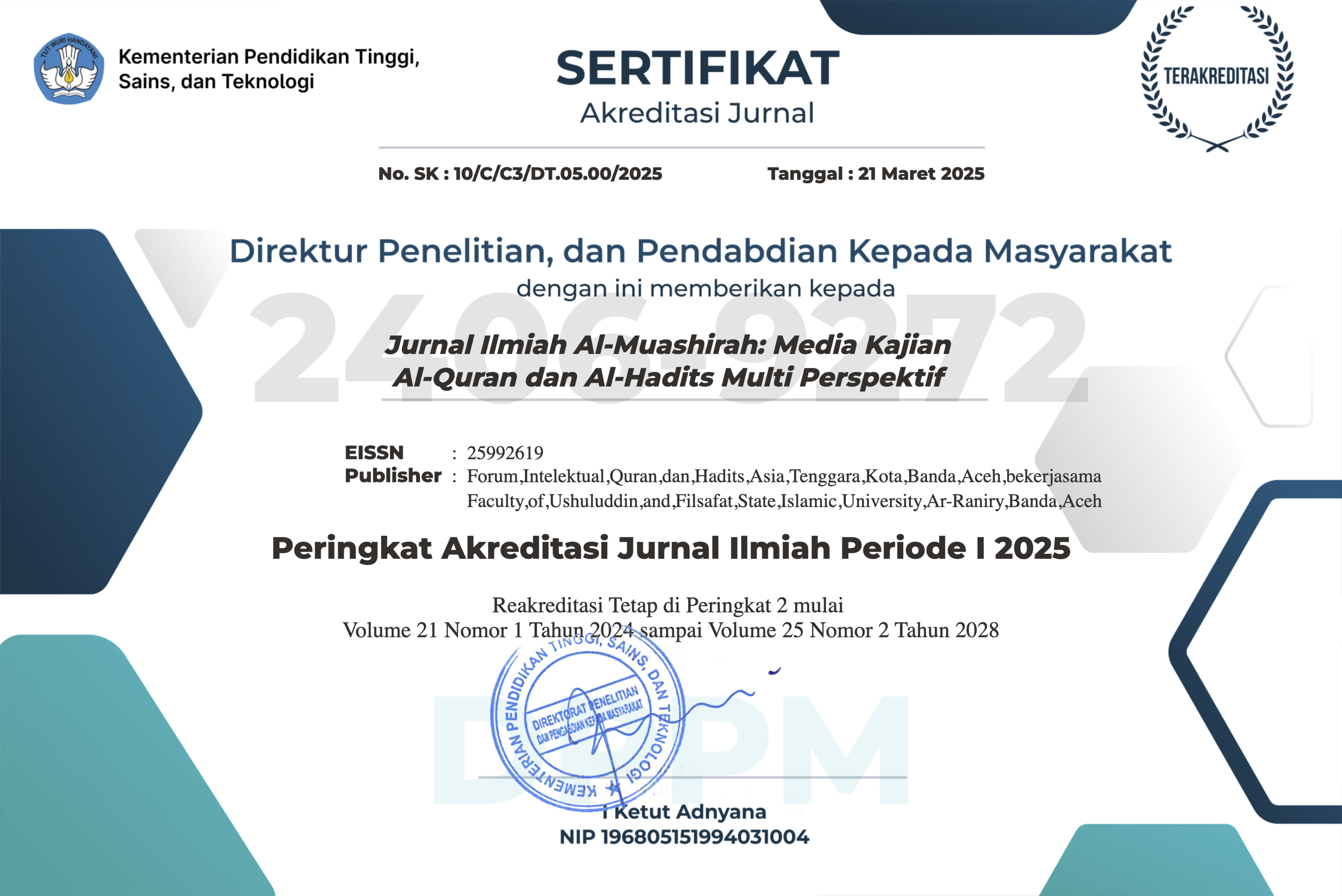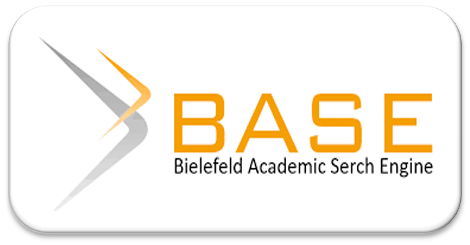Moderasi Beragama menurut Al-Qur’an dan Hadist
DOI:
https://doi.org/10.22373/jim.v18i1.10525Keywords:
Moderasi beragama, al-Quran, HadisAbstract
Religious moderation is a moderate understanding and practice of worship in religion, balanced, not extreme, and excessive. This article aims to know that the Koran and Hadith as the holy book of Muslims have roots and have great potential to invite their people to commit violence and terror, especially against people of other religions. In this research, the author uses the maudhu'i tafsir method, which is to raise one topic and then select several verses and Hadiths relating to religious moderation and then relate them to the contexts related to the problem being studied. The results of the study show that the Koran and Hadith do not invite Muslims to commit violence, extremes, and excessive religion. The Koran and Hadith offer that understanding and practicing religion must go through the path of balance and be in a middle way so that religion seems friendly, gentle and compassionate. Even balance is a necessity, including the laws of nature as the harmony of life. Otherwise, this world will be destroyed and perish.
ABSTRAK
Moderasi beragama adalah moderatnya pemahaman dan amalan beribadah dalam beragama, seimbang tidak ekstrem dan berlebih-lebihan. Artikel ini bertujuan untuk mengetahui apakah Al-Quran dan Hadis sebagai kitab suci umat Islam mempunyai akar dan berpotensi besar mengajak umatnya untuk melakukan kekerasan dan teror terutama terhadap umat beragama lain. Dalam penelitiannya ini, penulis menggunakan metode tafsir maudhu’i yaitu mengangkat satu topik kemudian memilih beberapa ayat dan Hadis yang berkenaan dengan moderasi beragama kemudian menghubungkan dengan konteks-konteks yang terkait dengan masalah yang dikaji. Hasil penelitian menunjukkan bahwa Al-Quran dan Hadis tidak mengajak umat Islam untuk melakukan kekerasan, ekstrem dan berlebih-lebihan dalam beragama. Al-Quran dan Hadis menawarkan bahwa memahami dan mengamalkan agama harus melalaui jalur keseimbangan dan berada di jalan tengah sehingga agama terkesan ramah, lembut dan kasih sayang. Bahkan keseimbangan merupakan suatu keniscayaan termasuk pada hukum alam sebagai harmoninya kehidupan. Jika tidak demikian dunia ini akan hancur dan binasa.
Downloads
References
Akhmadi, Agus. 2019. Religious Moderation In Indonesia’s Diversity. Jurnal Diklat Keagamaan 13(2)
Alatas, Alwi. 2015. AL FATIH " Sang Penakluk Konstantinopel". Jakarta: Zikrul Hakim
Al-Qur’an Al-Karim
Anwar, Rosihan. 2009. Pengantar Ulumul Qur’an. Bandung: Pustaka Setia
Ardiansyah. 2016. Islam Wasatîyah Dalam Perspektif Hadis: Dari Konsep Menuju Aplikasi. Jurnal Mutawâtir 6(2).
Mustafa, Agus. 2012. Mengarungi ‘Arsy Allah. Surabaya: PADMA Press
Qardhawi, Yusuf. 2017. Islam Jalam Tengah: Menjauhi Sikap Berlebihan dalam Agama. Bandung: Mizan
Saifuddin, Lukman Hakim. 2019. Moderasi Beragama. Jakarta: Badan Litbang dan Diklat Kementerian Agama RI
Shihab, M. Quraish. 2007. Secercah Cahaya Ilahi: Hidup Bersama Al-Qur’an. Bandung: Mizan
Truna, Dody S. 2010. Pendidikan Agama Islam Berwawasan Multikulturalisme. Jakarta: Kementerian Agama
Zamzami, Faisal. 2018. Ahli Fisika Stephen Hawking Meninggal Dunia, Sosok Ilmuwan Hebat yang Tiada Duanya, https://aceh.tribunnews.com/2018/03/14/ahli-fisika-stephen-hawking-meninggal-dunia-sosok-ilmuwan-hebat-yang-tiada-duanya?page=2.
Downloads
Published
Issue
Section
License
Authors who publish in Jurnal Ilmiah Al-Mu'ashirah agree to the following terms:
- Authors retain copyright and grant the journal right of first publication with the work simultaneously licensed under a Attribution-ShareAlike 4.0 International (CC BY-SA 4.0) License that allows others to share the work with an acknowledgment of the work's authorship and initial publication in this journal.
- Authors are able to enter into separate, additional contractual arrangements for the non-exclusive distribution of the journal's published version of the work (e.g., post it to an institutional repository or publish it in a book), with an acknowledgment of its initial publication in this journal.
- Authors are permitted and encouraged to post their work online (e.g., in institutional repositories or on their website) prior to and during the submission process, as it can lead to productive exchanges, as well as earlier and greater citation of published work (See The Effect of Open Access).













